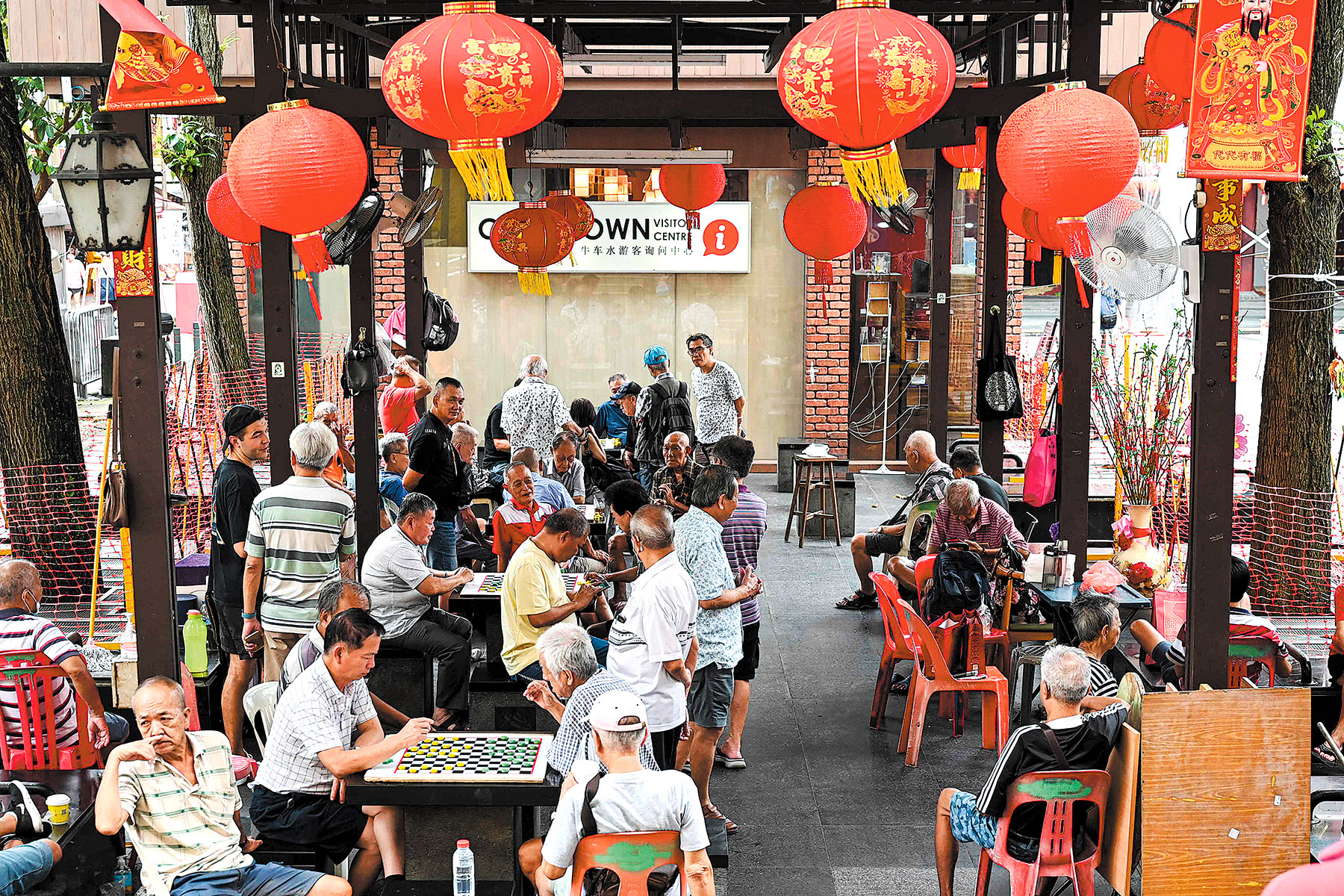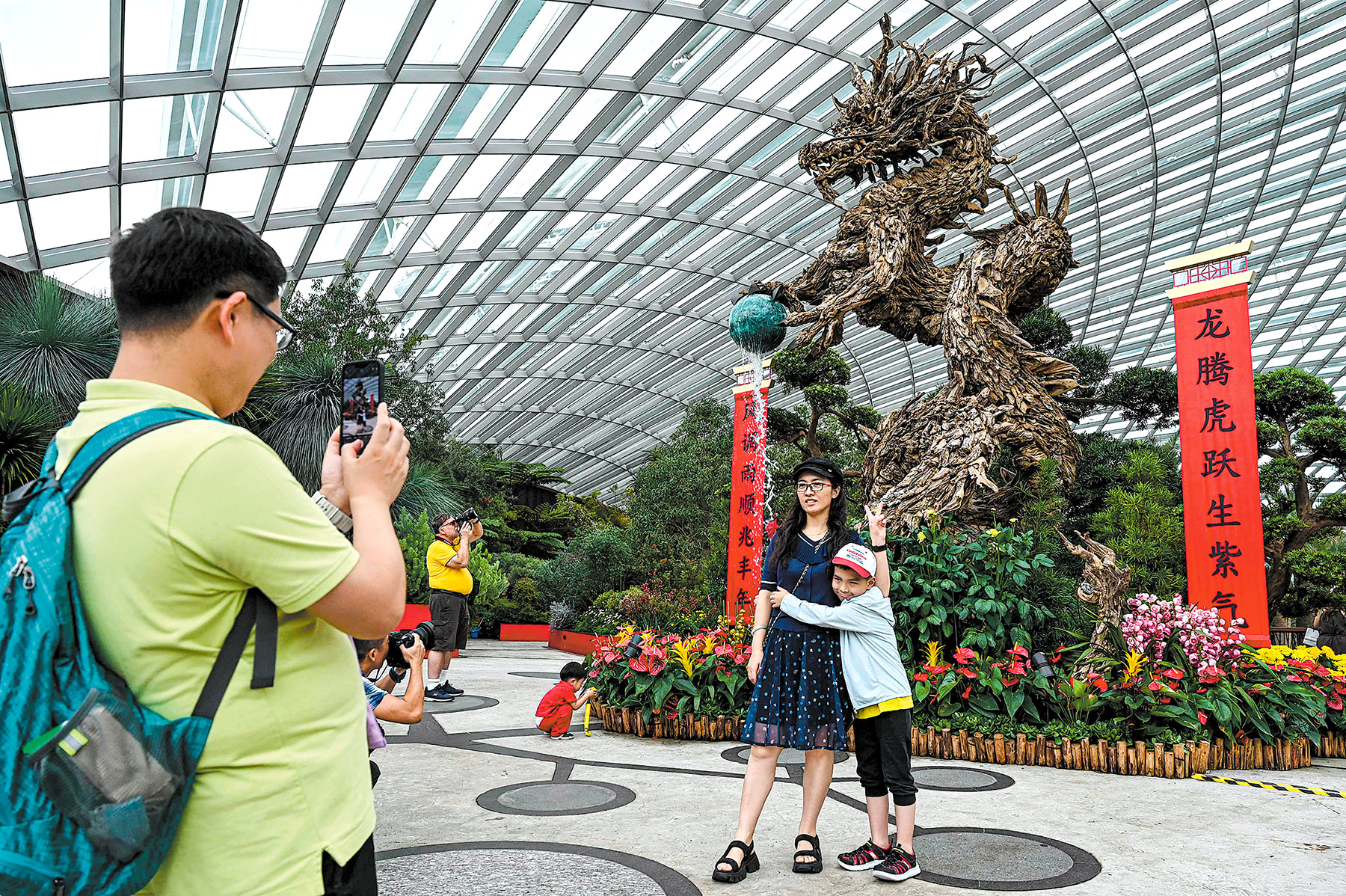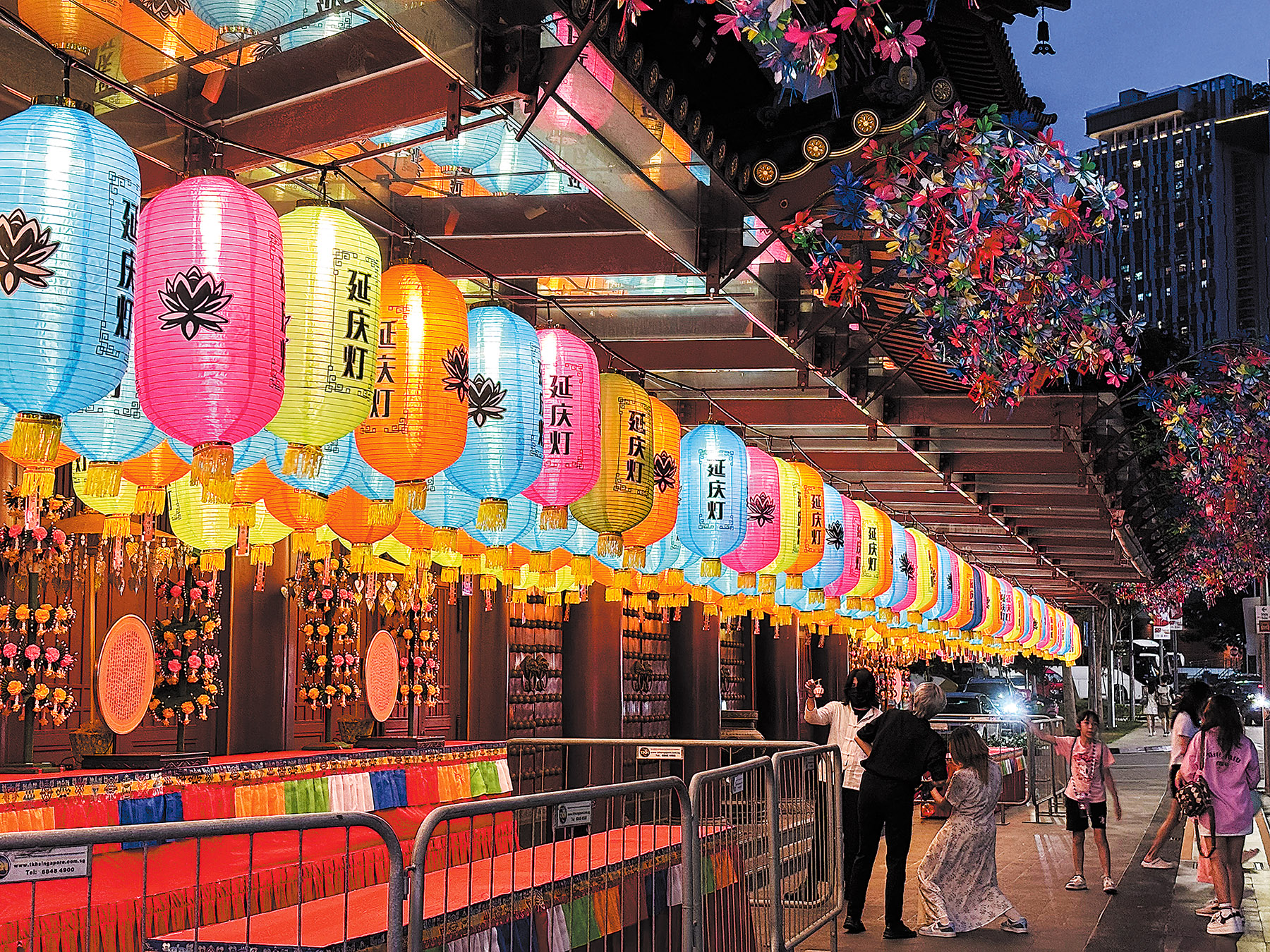Singaporean author traces the evolution of Singaporean Chinese names

Editor's note: In this weekly feature China Daily gives voice to Asia and its people. The stories presented come mainly from the Asia News Network (ANN), of which China Daily is among its 20 leading titles.
A Chinese Singaporean born in the 1960s might have been registered as Shiau Vee Hueng. By the 1980s, the same person would have been named Shiau Vee Hueng, Don (Xiao Weixiong, Don).
In the 1990s, the name might appear as Shiau Weixiong in his birth certificate, and by the 2010s, possibly as Don Shiau.
Writer Don Shiau noted this anecdotal observation using his own name at his talk at the National Library of Singapore on June 8.
The talk, titled "The Comfortable Chaos of Singaporean Chinese Names", was part of his residency with the National Arts Council-National Library Board Writers' Lab 2025 from February to April, a program that supports writers at the early stages of developing manuscripts.
He plans to write a book about the different "personas" he adopts when referred to by different names.
READ MORE: Tourism pie
Shiau's interest in Singaporean Chinese naming conventions began in mid-2024, when he noticed that his identity card listed both a dialect name and a pinyin one.
Now 44, he recalled having to write his name in pinyin in primary school, despite being given a dialect name.
He later learned this was a result of Singapore's 1979 Speak Mandarin Campaign, a language policy aimed at replacing Chinese dialects with Mandarin to promote greater communication among Chinese Singaporeans.
Academics told The Straits Times that Singaporean Chinese naming conventions have evolved over time, shaped by shifts in policy, preferences and broader global influences.
But in the absence of longitudinal and representative data, any generalizations should remain tentative, said Lee Wee Heong, head of Chinese studies at the Singapore University of Social Sciences.
In the 1950s, linguists created hanyu pinyin in order to standardize the pronunciation and romanization of Mandarin. Singapore was the first country to adopt the system outside of China in the 1970s.

In 1981, pinyin names were introduced in pre-primary and Primary 1 classes in Singapore, where pupils were told to write their pinyin names with dialect names.
Lee said: "Pinyin offered a consistent and standardized system for romanizing Chinese names and proved useful for administrative purposes such as school registration, ICs and passports."
This policy was later reversed in 1991, when the Ministry of Education of Singapore allowed the use of dialect surnames from the following year, but its effects were long-lasting.
Lee said that since then, a wider range of naming conventions has emerged.
"Today, we see full pinyin names (for example, Li Weixiong), traditional dialect romanization (for example, Lee Wee Heong), and hybrid forms combining dialect surnames with pinyin given names (for example, Lee Weixiong)," he said.
Some choose to register both dialect and pinyin names, with the latter being reflected in brackets in official records.
Chua Sioh Ling, 54, is one such example. Although her birth certificate lists only her dialect name, her identity card reads "Chua Sioh Ling (Cai Xiaoling)".
This has, however, led to some confusion when filling in documents or booking flights as she is constantly unsure of which name to use.
Another Singaporean, Lee Xuan Jin, 25, has both his dialect and pinyin name — Li Xuanjin — recorded on his birth certificate.
His parents followed the format used for Lee's father, whose name includes the pinyin version in brackets, but opted to name their son in pinyin instead of dialect.
In school, Lee typically wrote his name as "Lee Xuan Jin", though he once experimented in primary school by using "Xuanjin", as he thought it looked more "stylistic".
Among younger Chinese Singaporeans, Shiau has observed that some no longer include their Chinese names in the English portion of their birth certificate.
Shanice Hoo, 22, is a case in point. Although her father has a dialect name, he chose a simple and recognizable name for her. Hence, her identity card lists only "Shanice Hoo" in English, with her Chinese name appearing only in Chinese characters.

Cultural influence
Peter Tan Kok Wan, a senior lecturer at the National University of Singapore's Department of English, Linguistics and Theatre Studies, said young Singaporeans are primarily English speakers and that Singaporean culture is, to some extent, influenced by other cultures.
"They want names that work well in Singapore and when they go overseas … The given names (Chinese-based and English-based ones) are what parents can play around with."
Douglas Ong Say Howe, 30, was given a Hokkien name by his parents to reflect his Hokkien heritage, along with an English name to set him apart from others with more common English names.
Still, there are variations in naming practices, said observers.
Lee said these variations reflect personal and familial preferences, parental attitudes, and practical considerations such as pronunciation.
Some families opt for continuity with older generations, while others embrace modern naming conventions that reflect a more global or bilingual identity, he said.
Foo Suan Fong, executive director of the Singapore Centre for Chinese Language, said that retaining dialect names can be a way to preserve the unique Singapore cultural identity.
For Lim Tia Kiat, 21, his name is a rare sight for Singaporeans born in the 21st century.
His father, Lim Kai Ching, 52, wanted his sons to remember their Hokkien roots.
Believing that Chinese names carry deeper significance — something he feels is often lost in English names — he consulted a feng shui (a traditional form of geomancy that originated in ancient China) master to choose his sons' full dialect names.
While both sons were given traditional names, Lim encourages them to take on English names if they wish.
ALSO READ: Singaporean student bridges gaps in Chinese orchestra
In recent decades, the arrival of new Chinese citizens has added further diversity to naming practices in Singapore, said academics.
For instance, Chinese people living in the Chinese mainland typically use standard hanyu pinyin for their names, including family surnames.
Lee said some new immigrants from China opt to use dialect-based spellings for their names instead of pinyin — for example, Teo Wei Ming instead of Zhang Weiming — "in order to blend in more seamlessly with local-born Singaporeans".
In the case of Ilyssa Feng Yuan Yi, 22, she was originally named "Feng Yuan Yi" by her China-born parents, and she later added an English name through a deed poll in 2020.
While the romanization of Chinese names has changed over time, what is most important is the Chinese characters themselves, said Lee.
"Regardless of whether a name is written as Lee Wee Heong, Lee Weixiong or Li Weixiong, the underlying Chinese characters remain constant and are what truly anchor a person's identity, reflect parental aspirations and connect generations across time," he said.


